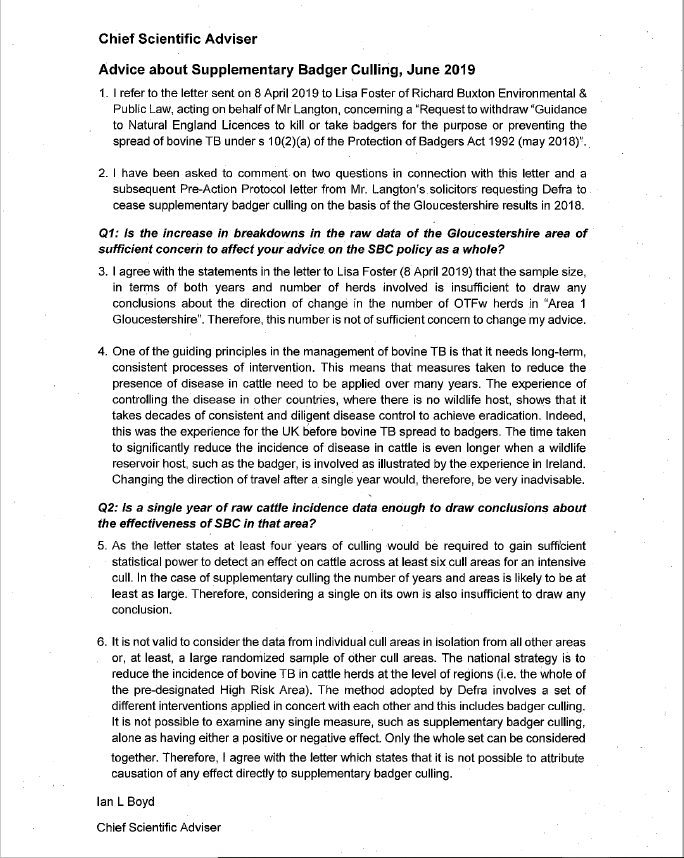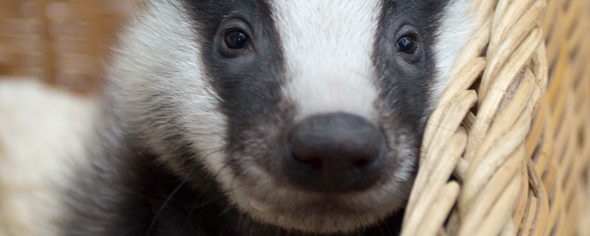Last summer, following the spike of bTB in the first Gloucestershire pilot cull area, a pre-action letter was commented on by the governments chief scientific adviser, Ian L. Boyd. His June note was sent shortly before his retirement and it offers a bit more insight. The response related to how much information is needed before measurable benefits from bTB interventions can be seen. Initially he seemed to believe that it would take four years of Supplementary Badger Culling (SBC) over a six year period to be able to try to examine any effect from new interventions. Thus as SBC began in 2017 with Gloucestershire and Somerset (Areas 1 & 2) , then Dorset in 2019 (Area 3), and potentially seven more this year, it will be 2024 before theoretical modelling of change can be undertaken. However it is Point 6 that contradicts and startles. Here it states that “It is not possible to examine any single measure such as supplementary badger culling alone as having a positive or negative effect.” The note goes on to say that only the whole set of interventions can be considered together; what happens from all interventions in a region i.e. the High Risk Area or Edge Area. In other words, the approach taken is to use everything that you think might work including culling badgers everywhere (to 2030 and beyond) and hope that bTB comes down, but whether it does or doesn’t, just carry on.
This reveals the dilemma, in that the unproven and risky SBC may neutralise any hypothetical benefit in terms of new herd bTB breakdowns or make breakdowns worse. This has been confirmed in court. Any ‘comfort’ that Defra could ‘adapt and learn’ as it went along, apparently does not exist. There is no learning and no control, only an end result. The same can presumably be said, therefore, of any tinkering with further small scale trials such as those proposed by the new Defra Policy relating to the Godfray Review. The facts are that this is not just policy out of control. It has no control. There is no way to find out if your interventions are useless or making things worse.

Discover more from The Badger Crowd - standing up for badgers
Subscribe to get the latest posts sent to your email.

